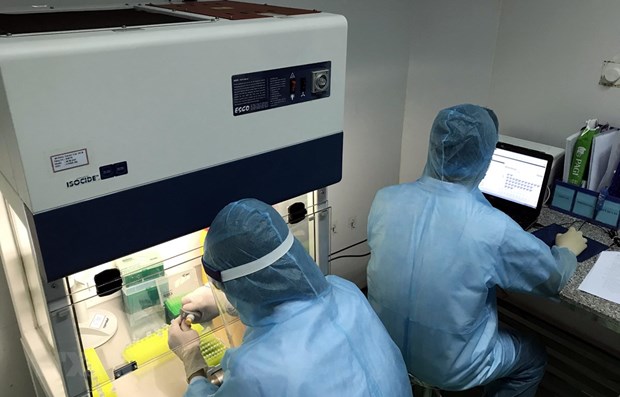
Vietnam has mastered two SARS-CoV-2 testing methods, the National Steering Committee for COVID-19 Prevention and Control affirmed at its meeting on April 27.
Vietnam has mastered two SARS-CoV-2 testing methods, the National Steering Committee for COVID-19 Prevention and Control affirmed at its meeting on April 27.
 |
| Doctors conduct SARS-CoV-2 tests using the real-time RT-PCR technology (Source: VNA) |
There are currently two main testing methods used in parallel around the world: Polymerase Chain Reaction (PCR) and antibody testing (quick tests).
PCR testing produces more accurate results as it can detect the genetic information of the virus. The method, however, features highly-specialised stages and needs to be performed by experts as it involves complex equipment.
Quick tests, meanwhile, are easier to use but their accuracy is much lower than the PCR method. The latter is therefore often used to confirm the former’s results.
Vietnam has used both methods well to ensure effective COVID-19 prevention and control, the committee said.
Deputy Health Minister Nguyen Thanh Long said that initially Vietnam used biological products from the World Health Organisation, the US Centre for Disease Control and Prevention (CDC), and Germany.
The Military Medical University and the Viet A Company then worked together on developing biological products for PCR tests to replace those from abroad. Vietnam’s test kit has been recognised by the WHO and the UK and can be used globally.
Long said that 112 laboratories around Vietnam are now capable of diagnosing the novel coronavirus by using real-time RT-PCR technology. Of these, 48 have been given the go-ahead to conduct confirmatory tests, with a maximum capacity of 14,300 samples per day.
Regarding antibody testing, the committee said the National Institute of Hygiene and Epidemiology has worked with a Japanese university to research and successfully produce a biological product with an accuracy rate of 95 percent.
The Ministry of Health affirmed that the biological product can replace those imported from aboard. It is now carrying out procedures for recognition of the biological product so as to put it into mass production shortly.
Vietnam can then actively use both methods to carry out early screening to detect infections quickly./.
(Source:VNA)





